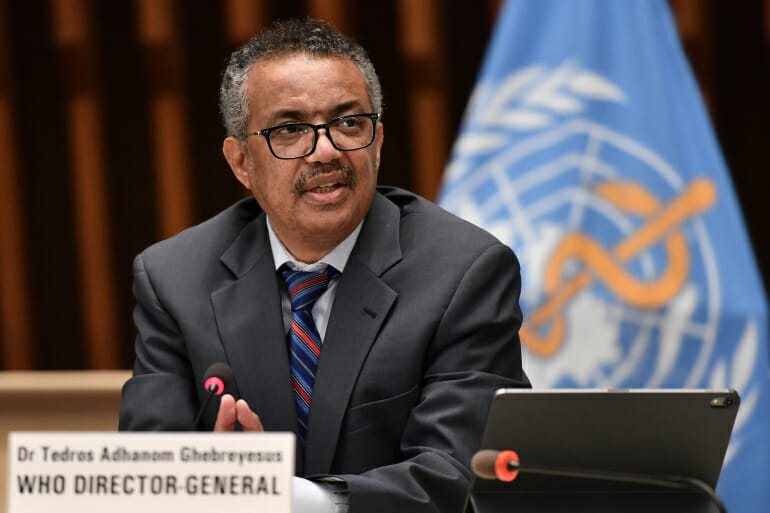WHO recommends two new drugs for treatment of COVID-19 patients

The World Health Organisation (WHO) has recommended two new drugs namely baricitinib and sotrovimab for the treatment of COVID-19 patients.
This was contained in a statement released on Thursday by the World Health Organisation.
According to the global health body, the recommendation is based on new evidence from seven trials involving over 4,000 patients with severe, non-severe, and critical COVID-19 infections.
According to the WHO, baricitinib — also used to treat rheumatoid arthritis — is strongly recommended for patients with severe or critical COVID-19 in combination with corticosteroids.
The global health body said the “strong recommendation” is based on moderate certainty evidence that it improves survival and reduces the need for ventilation, with no observed increase in adverse effects.
“The WHO experts note that baricitinib has similar effects to other arthritis drugs called interleukin-6 (IL-6) inhibitors so, when both are available, they suggest choosing one based on cost, availability, and clinician experience. It is not recommended to use both drugs at the same time,” the statement reads.
The WHO made a “conditional recommendation” for the use of sotrovimab, a monoclonal antibody (made by cloning a unique white blood cell), in patients with non-severe COVID-19, but only in those at highest risk of hospitalisation.
“A similar recommendation has been made by WHO for another monoclonal antibody drug (casirivimab-imdevimab),” the statement added.
“The experts also note that there were insufficient data to recommend one monoclonal antibody treatment over another – and they acknowledge that their effectiveness against new variants like omicron is still uncertain.
“As such, they say guidelines for monoclonal antibodies will be updated when additional data become available.”
The post WHO recommends two new drugs for treatment of COVID-19 patients appeared first on NEWS.